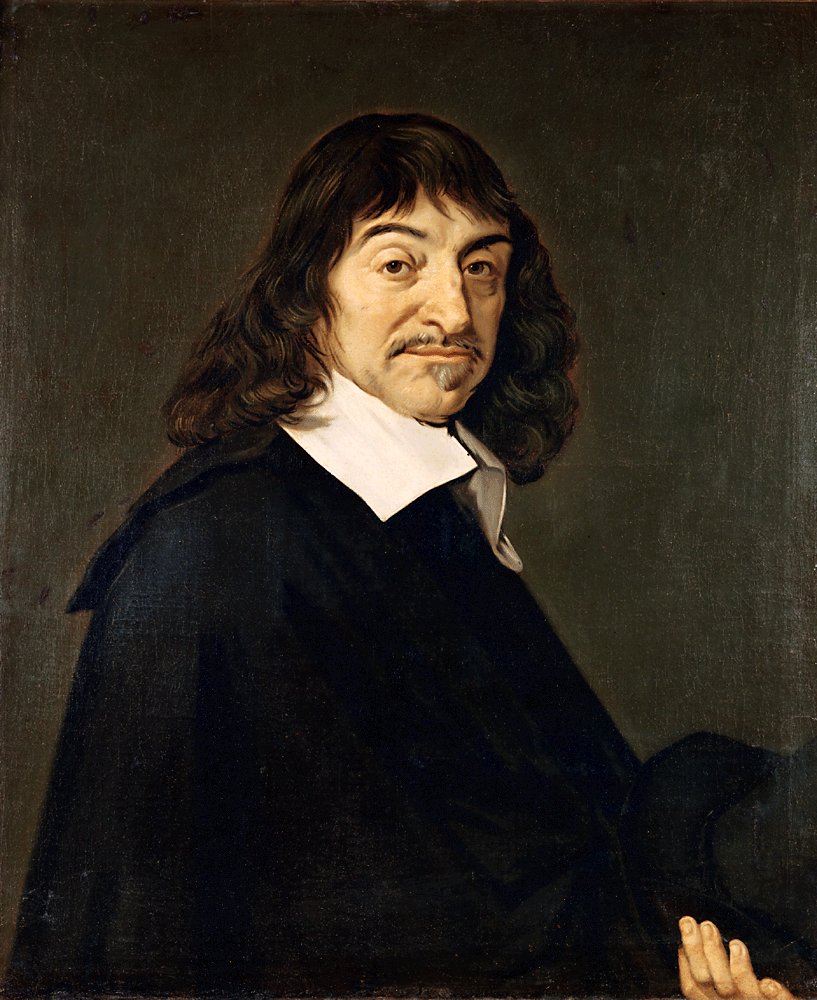„Pochybuji, tedy myslím; myslím, tedy jsem.“
Zdroj: Thomas, Éloge de Descartes (1765). Předmluva k Discours de la méthode http://www.gutenberg.org/etext/13846)
René Descartes byl francouzský filosof, matematik a fyzik.

„Pochybuji, tedy myslím; myslím, tedy jsem.“
Zdroj: Thomas, Éloge de Descartes (1765). Předmluva k Discours de la méthode http://www.gutenberg.org/etext/13846)
Zdroj: [Vergely, Bertrand, Velké filosofické otázky, Levné knihy KMa, Praha, 2009, 978-80-7309-636-6, 12, Dopis královně Alžbětě z 18. května 1645]
Zdroj: [Descartes, René, Principy filosofie, Filosofia, Praha, 1998, 80-7007-112-5, 179]
Originál: (fr) Le bon sens est la chose du monde la mieux partagée : car chacun pense en être si bien pourvu, que ceux même qui sont les plus difficiles à contenter en toute autre chose, n'ont point coutume d'en désirer plus qu'ils en ont.
Zdroj: Discours de la méthode 1637, první věta
„Poznávání pravdy je zdraví lidského ducha.“
Varianta: Poznání pravdy jest zdraví lidského ducha.
„Žít a nefilosofovat je jako mít zavřené oči a nikdy se ani nepokusit je otevřít.“
Originál: (fr) C'est proprement avoir les yeux fermés, sans tâcher jamais de les ouvrir, que de vivre sans philosopher.
Zdroj: Les Principes de la philosophie, předmluva
Originál: (fr) Je pense, donc je suis.
Originál: (la) Ego cogito, ergo sum.
Zdroj: Discours de la méthode IV. (fr) /Principia philosophiae I. 7 (la)
„Pochybuji - a proto myslím. Myslím - tedy jsem.“
DUBITO ERGO COGITO. COGITO ERGO SUM.
Originál: (fr) Puisque je doute, je pense; puisque je pense, j’existe.
Zdroj: Thomas, Éloge de Descartes, 1765. Předmluva k Discours de la méthode http://www.gutenberg.org/etext/13846
„Kdo přestal milovat ženu, tomu je láska k jedné ženě málo.“
Přisuzované
Zdroj: Sfinga křížovka 25/2008
Principia philosophiae I. 7
Originál: (fr) Je pense, donc je suis.
Originál: (la) Ego cogito, ergo sum
“With me, everything turns into mathematics.”
Mais apud me omnia fiunt Mathematicè in Natura More closely translated as: but in my opinion, all things in nature occur mathematically. Note: "Mais" is French for "but" and the "but in my opinion" comes from the context of the original conversation. apud me omnia fiunt Mathematicè in Natura is in latin. Sometimes the Latin version is incorrectly quoted as Omnia apud me mathematica fiunt. Sources: Correspondence with Mersenne http://fr.wikisource.org/wiki/Page%3aDescartes_-_%C5%92uvres,_%C3%A9d._Adam_et_Tannery,_III.djvu/48 note for line 7 (1640), page 36, Die Wiener Zeit http://books.google.com/books?id=9Xh3fVZLCycC&pg=PA532&lpg=PA532&dq=%22Omnia+apud+me+mathematica+fiunt%22+original+zitat&source=bl&ots=CgQOrveRiM&sig=WFHwIK20r5vRZ66FwCaxo857LCU&hl=de&sa=X&ei=_Wf2UcHlJYbfsgaf1IHABg#v=onepage&q=%22Omnia%20apud%20me%20mathematica%20fiunt%22%20original%20zitat&f=false page 532 (2008); StackExchange Math Q/A Where did Descartes write... http://math.stackexchange.com/questions/454599/where-did-descartes-write-with-me-everything-turns-into-mathematics?noredirect=1#comment978229_454599
“I doubt, therefore I think, therefore I am.”
Cogito, ergo sum.
Varianta: Dubito, ergo cogito, ergo sum.
(English: "I doubt, therefore I think, therefore I am")
Letter to Marin Mersenne (end of Feb., 1634) as quoted by Amir Aczel, Pendulum: Leon Foucault and the Triumph of Science (2003)
Me tenant comme je suis, un pied dans un pays et l’autre en un autre, je trouve ma condition très heureuse, en ce qu’elle est libre.
Letter to Elisabeth of Bohemia, Princess Palatine (Paris, June/July 1648)
Rules for the Direction of the Mind in Key Philosophical Writings (1997), pp. 29-30 http://books.google.com/books?id=jjWPe-9NPoEC&pg=PA29
Letter to Marin Mersenne (1637) as quoted by D. E. Smith & M. L. Latham Tr. The Geometry of René Descartes (1925)
“With me, everything turns into mathematics.
More closely translated as: but in my opinion, all things in nature occur mathematically.”
Mais apud me omnia fiunt Mathematicè in Natura
""Mais"" is French for ""but"" and the ""but in my opinion"" comes from the context of the original conversation. apud me omnia fiunt Mathematicè in Natura is in latin.
Sometimes the Latin version is incorrectly quoted as Omnia apud me mathematica fiunt.
Sources: Correspondence with Mersenne http://fr.wikisource.org/wiki/Page%3aDescartes_-_%C5%92uvres,_%C3%A9d._Adam_et_Tannery,_III.djvu/48 note for line 7 (1640), page 36, Die Wiener Zeit http://books.google.com/books?id=9Xh3fVZLCycC&pg=PA532&lpg=PA532&dq=%22Omnia+apud+me+mathematica+fiunt%22+original+zitat&source=bl&ots=CgQOrveRiM&sig=WFHwIK20r5vRZ66FwCaxo857LCU&hl=de&sa=X&ei=_Wf2UcHlJYbfsgaf1IHABg#v=onepage&q=%22Omnia%20apud%20me%20mathematica%20fiunt%22%20original%20zitat&f=false page 532 (2008); StackExchange Math Q/A Where did Descartes write... http://math.stackexchange.com/questions/454599/where-did-descartes-write-with-me-everything-turns-into-mathematics?noredirect=1#comment978229_454599
Letter to Marin Mersenne (July 27, 1638) as quoted by Florian Cajori, A History of Mathematics (1893) letter dated in The Philosophical Writings of Descartes Vol. 3, The Correspondence (1991) ed. John Cottingham, Robert Stoothoff, Dugald Murdoch
“Discourse on the Method of Rightly Conducting the Reason, and Seeking Truth in the Sciences”
Le Discours de la Méthode (1637)
